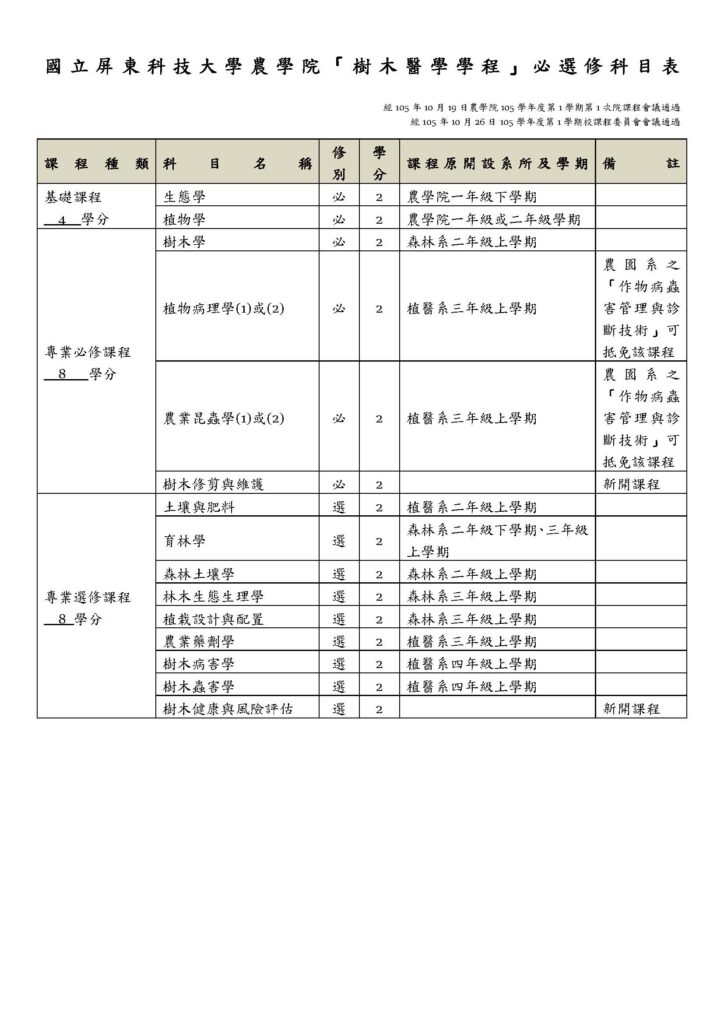Programs
Microbial Agent Development Program
- Course Planning
In the government’s full-scale promotion of the Five Rings of Food Safety initiative, the goal of plant doctors is to reduce the use of chemical pesticides. In the effort to decrease reliance on chemical pesticides, it is essential not only to understand the problems caused by these substances but also to develop viable alternative solutions to address threats posed by pests and diseases affecting crops. Among these alternatives, microbial agents have emerged as a popular and innovative approach. However, the industry continues to face a shortage of specialized professionals in this field.
During the summer of academic year 1995, the Department of Plant Medicine organized a special field-based practical training program under the Teaching Excellence Project. Faculty members led students on industry visits to observe professional practices and gain insight into workforce demands. Through direct engagement with industry representatives, students identified a significant shortage of skilled professionals specializing in microbial fermentation agents within the sector.
- Industry Challenges
The specialized credit program is designed with the objective of applying microbiology to pest and disease management. In addition to completing core courses in microbiology, agricultural pharmacology, and plant pathology, students are required to engage in interdisciplinary learning to better adapt to the diverse professional environments they may encounter after graduation. To this end, a course in biotechnological industrial machinery has been incorporated as a foundational component of cross-disciplinary education.
Furthermore, to ensure the effective application and future promotion of microbial agents, students must also develop expertise in intellectual property protection and entrepreneurial principles. These interdisciplinary subjects are recognized as essential elements of this specialized curriculum.
The micro-courses within the program emphasize practical training, covering topics such as microbial agents, microbial fermentation engineering, agricultural pesticide toxicity assessment, and agricultural pesticide residue detection practices. The primary instructional strategy involves appointing industry professionals as instructors and utilizing the department’s Microbial Agent R&D Center as the principal training facility. Additionally, industry partnerships enable comprehensive internship opportunities to be conducted on weekends, ensuring students gain hands-on experience aligned with real-world applications.
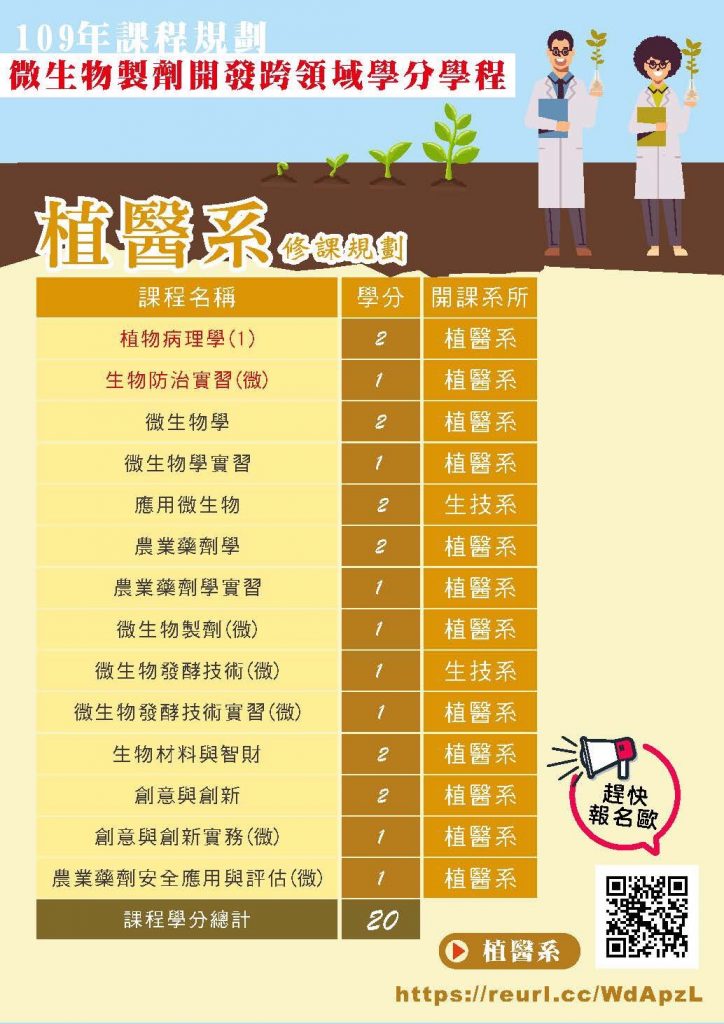
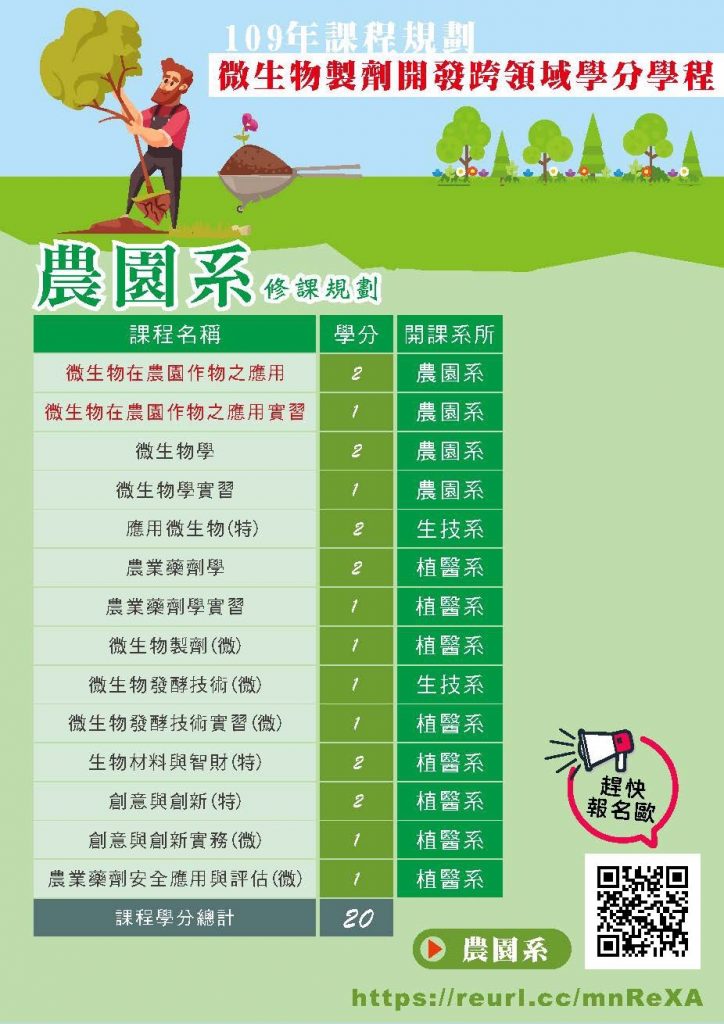
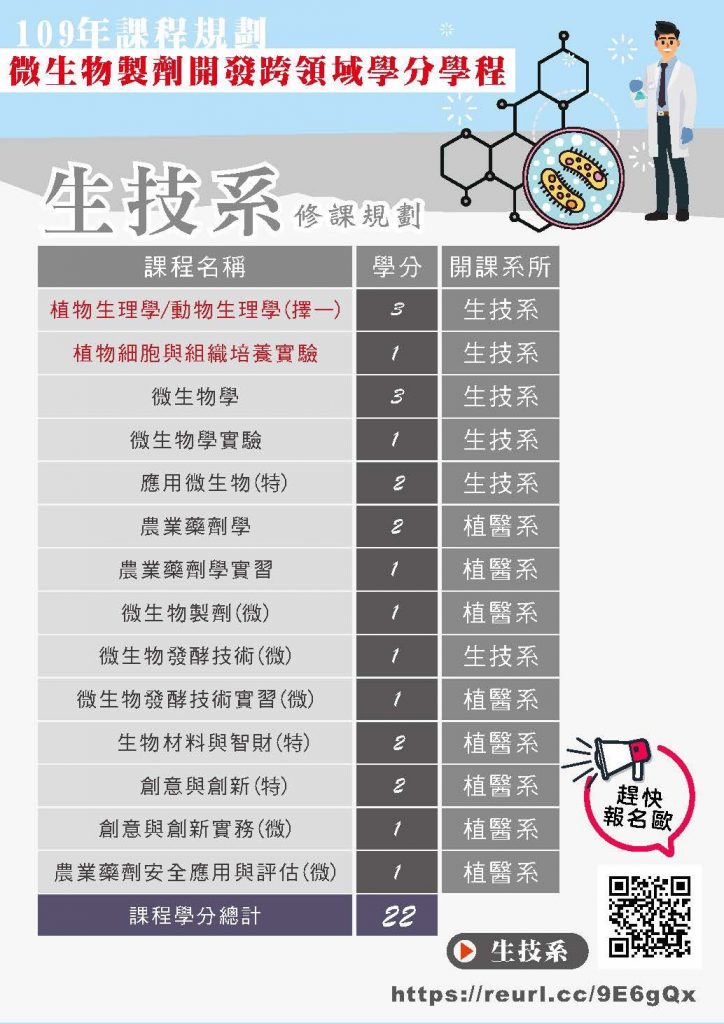
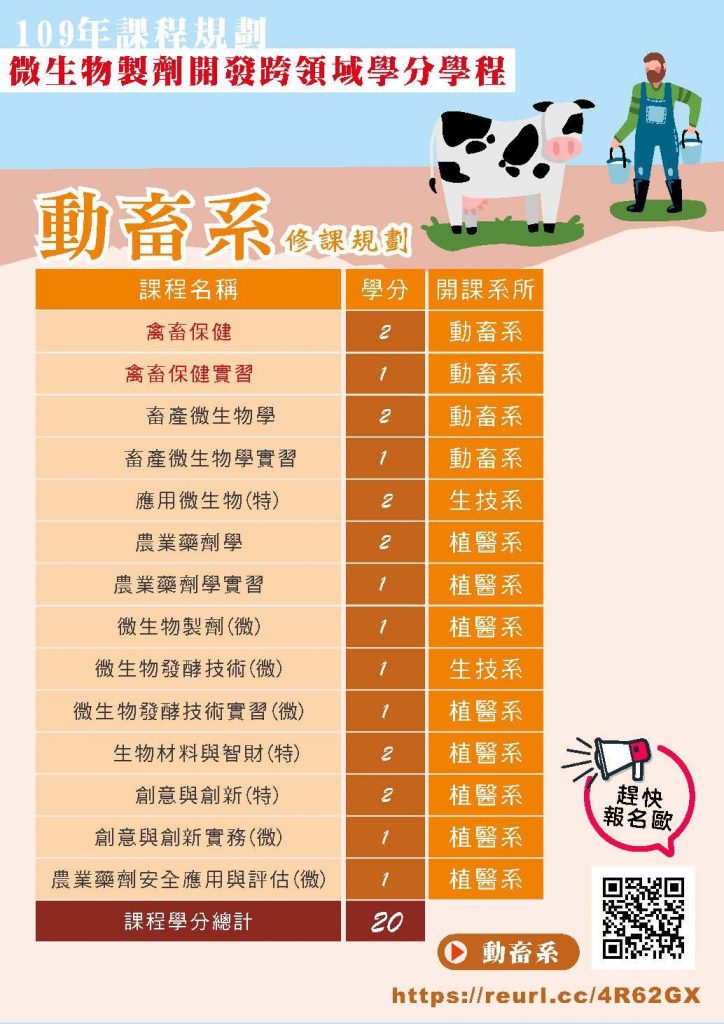
Arboriculture Medicine Program
